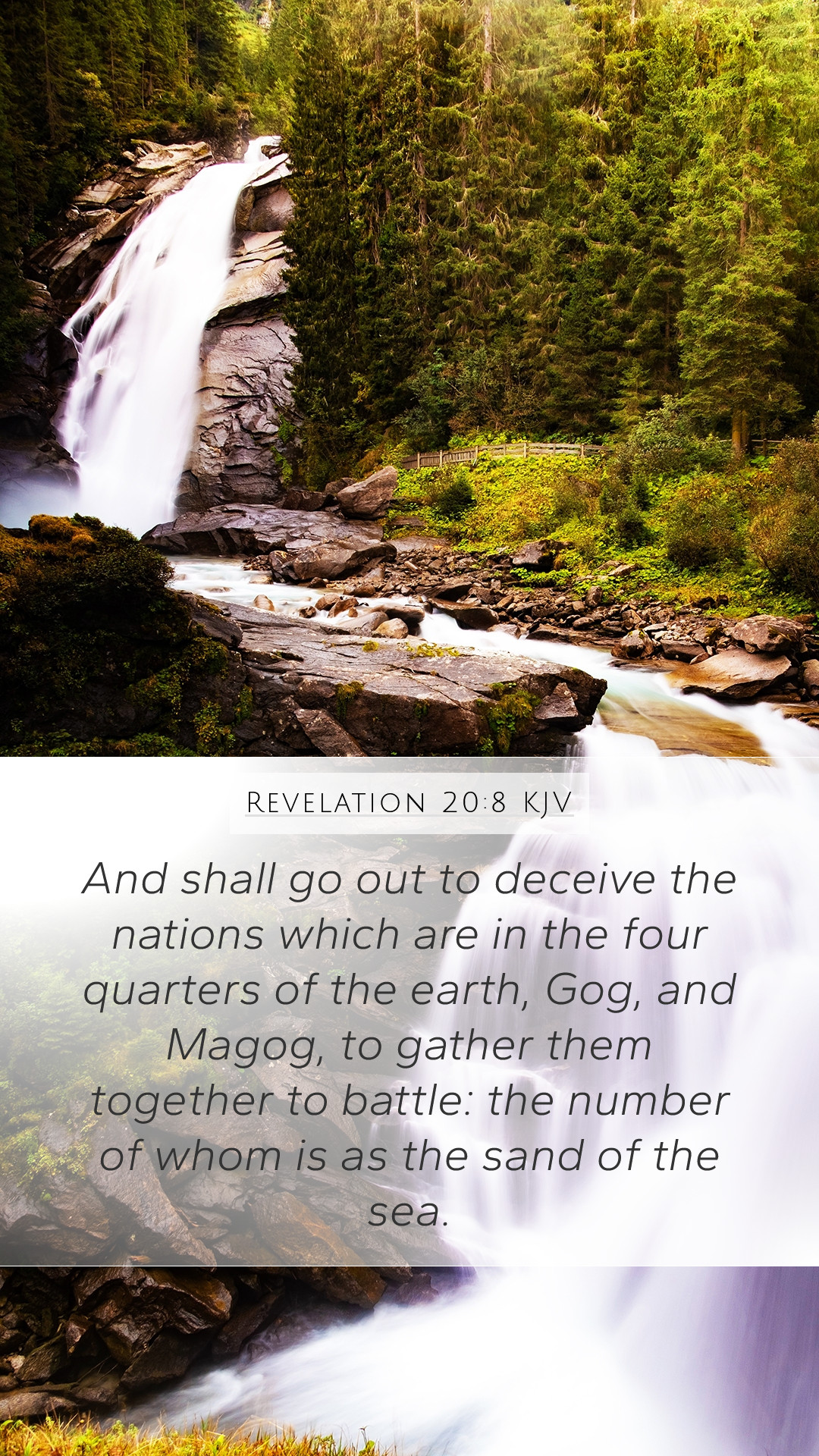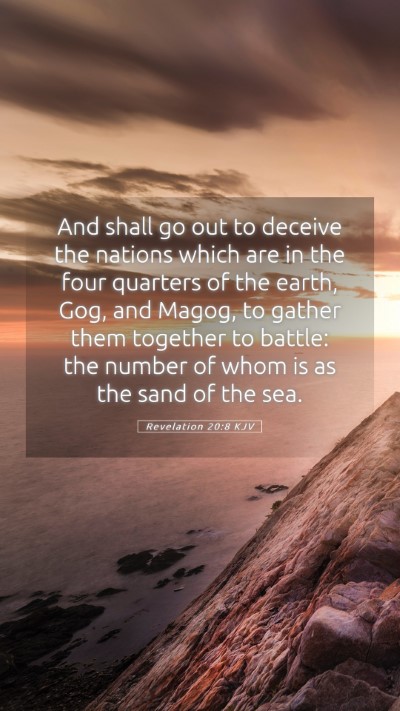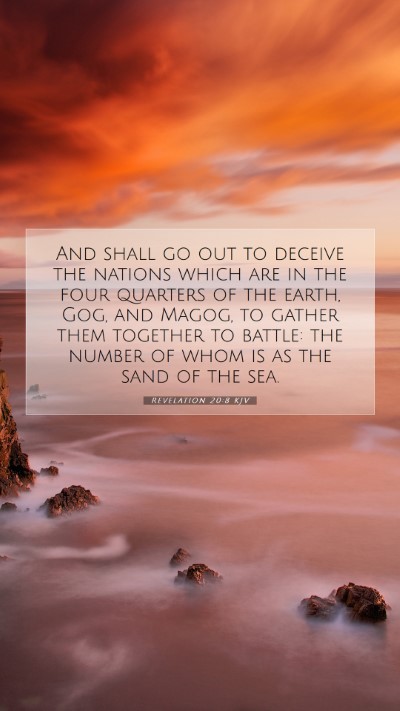Understanding Revelation 20:8
Bible Verse: Revelation 20:8
Text of the Verse: "And shall go out to deceive the nations which are in the four quarters of the earth, Gog and Magog, to gather them together to battle: the number of whom is as the sand of the sea."
Overview of Revelation 20:8
This verse is part of the concluding vision of the Book of Revelation, which describes the ultimate rebellion of humanity against God following the millennium reign of Christ. It identifies the forces of evil, represented by Gog and Magog, that will be rallied by Satan. The imagery underscores the unending conflict between divine authority and human rebellion.
Insights from Public Domain Commentaries
Matthew Henry's Commentary
Matthew Henry emphasizes the deceptive power of Satan, who after being released from his prison, goes forth to mislead the nations. He notes that Gog and Magog symbolize the enemies of God’s people throughout history and the end times.
Albert Barnes' Notes on the Bible
Albert Barnes offers a historical interpretation, elaborating on Gog and Magog as representations of the chaotic forces in the world that oppose God's kingdom. He suggests that this gathering signifies a final rebellion against the righteous reign of Christ, highlighting the vastness of those who will be deceived, likening their numbers to the sand of the sea.
Adam Clarke's Commentary
Adam Clarke provides an extensive analysis of the eschatological framework, hinting that the reference to Gog and Magog pulls from the Old Testament (Ezekiel 38-39). He sees this as a recurrence of evil that resists God's purposes, with emphasis on the futility of such opposition against divine will, noting this as a critical moment before final judgment.
Thematic Significance
- Deception and Rebellion: The passage illustrates the persistent nature of evil and the capacity for nations to be misled, encouraging readers to remain vigilant against deception.
- God's Sovereignty: Highlighting the futility of rebellion against God, this verse reassures believers of God's ultimate authority over history and the final outcome.
- Hope for the Faithful: While it speaks of conflict, the context of Revelation points to a hope that faithfulness will endure through trials.
Practical Applications
- Bible Study Insights: This verse inspires deeper investigation into the broader biblical narrative regarding judgment and redemption.
- Understanding Scripture: Reflecting on this verse helps believers comprehend the ongoing spiritual warfare that exists in the world.
- Applying to Daily Life: It serves as a reminder to rely on God's truth to resist deception and remain steadfast in faith.
Related Bible Cross References
- Ezekiel 38:2-3 - The prophecy concerning Gog.
- Revelation 20:7 - The release of Satan.
- Genesis 10:2-3 - The origins of Gog and Magog.
- Zechariah 14:2 - The gathering of the nations against Jerusalem.
- Matthew 24:24 - False prophets and deceivers in the last days.
Final Thoughts
The passage of Revelation 20:8 is layered with meaning, offering insights into humanity's propensity for rebellion, the nature of divine sovereignty, and the assurance of God's ultimate victory. Engaging with this verse through various biblical lenses enhances understanding of Scripture and fortifies the believer’s faith amidst spiritual conflict.
More Resources for Study
For those seeking to further explore this verse and its implications, consider engaging in:
- Online Bible study platforms that offer discussions about the Book of Revelation.
- Bible study groups focusing on eschatological themes.
- Bible study guides that delve into prophetic literature and its interpretation.


